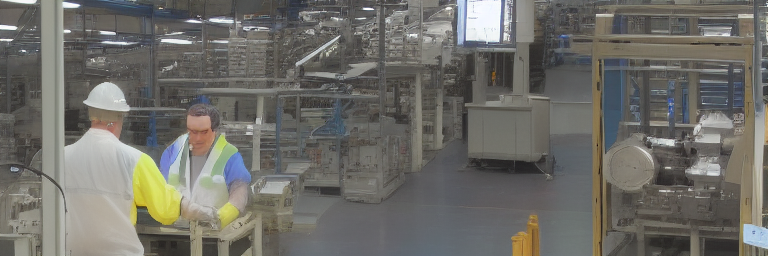Manufacturing Software
Manufacturing software is a software that assists in the manufacturing process. It can help with a variety of tasks such as planning, scheduling, execution, and quality control. By automating these tasks, it can help to improve efficiency and accuracy in the manufacturing process. It provides the ability to manage, automate and optimize the production process. This includes the ability to control and monitor production equipment, schedule production runs, track inventory levels, and manage quality control. The software can also interface with other business systems to provide a complete view of the manufacturing process.
Types of Manufacturing Software
There are many different types of software used in manufacturing, from simple process control software to more complex enterprise resource planning (ERP) systems. Some software is used to control and monitor individual machines, while others are used to manage and optimize production lines. In general, manufacturing software can be divided into four main categories: process control, production management, quality management, and maintenance management.
Process control software is used to monitor and control individual machines or production lines. This type of software is typically used in factories that assemble products from individual components.
Production management software is used to manage and optimize the production process. This type of software is typically used in factories that produce products in batches.
Quality management software is used to ensure that products meet quality standards. This type of software is typically used in factories that produce products that require strict quality control.
Maintenance management software is used to manage and optimize the maintenance of machines and production lines. This type of software is typically used in factories that produce products that require frequent maintenance.
Considerations
There are many considerations to take into account when choosing manufacturing software. The first is to identify the needs of the manufacturing business and then to find software that can address those needs. The software should be able to streamline the manufacturing process and make it more efficient. It should also be able to provide accurate information about the manufacturing process so that the business can make informed decisions.
Another consideration is the cost of the software. Manufacturing businesses need to be careful about spending too much on software that may not provide a good return on investment. They should also be sure to get software that is compatible with their existing systems and software.
Finally, the manufacturer should consider the customer service and support that is available from the software company. They should make sure that they will be able to get help when they need it and that the company is responsive to their questions and concerns.
The Future
In the future, manufacturing software will continue to evolve and become more sophisticated. This will allow manufacturers to become more efficient and productive. Additionally, the use of artificial intelligence and machine learning will become more prevalent. This will allow the software to better predict demand and optimize production.
The future will be based on more artificial intelligence and machine learning. This will allow for more automation and customization of products. Additionally, the user interfaces will become more intuitive and user-friendly.
Manufacturing software will utilize AI in order to streamline production processes and optimize output. By using AI to analyze data and identify patterns, manufacturing software will be able to make predictions about potential problems and recommend solutions. Additionally, AI will be used to automate tasks such as quality control and inventory management. This will allow manufacturers to reduce costs and increase efficiency.
In the future, manufacturing software will utilize ML to predict demand, optimize production, and schedule maintenance. As machine learning is refined and developed, it will become increasingly integrated into manufacturing software. This will allow for ever-more accurate predictions about production times, quality control, and other aspects of the manufacturing process. In addition, machine learning will allow for the development of new manufacturing processes and the optimization of existing ones.

